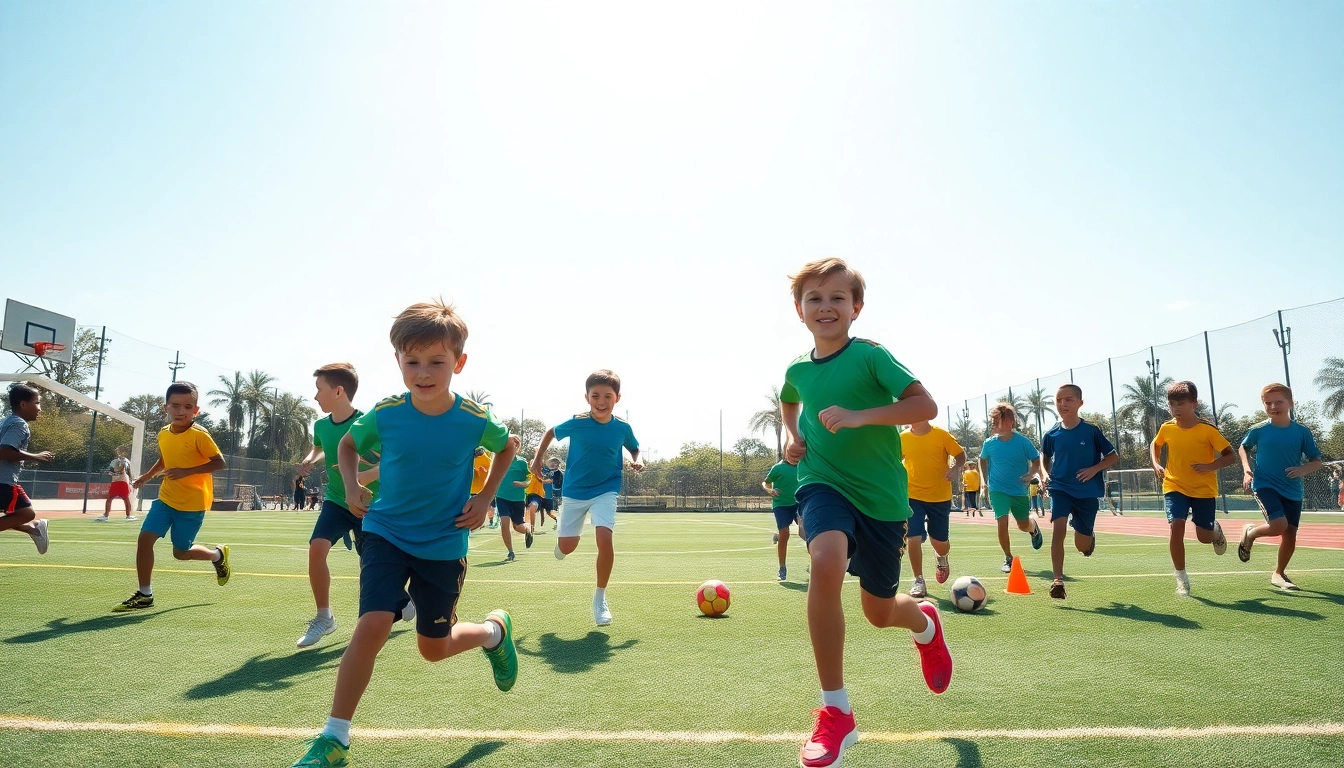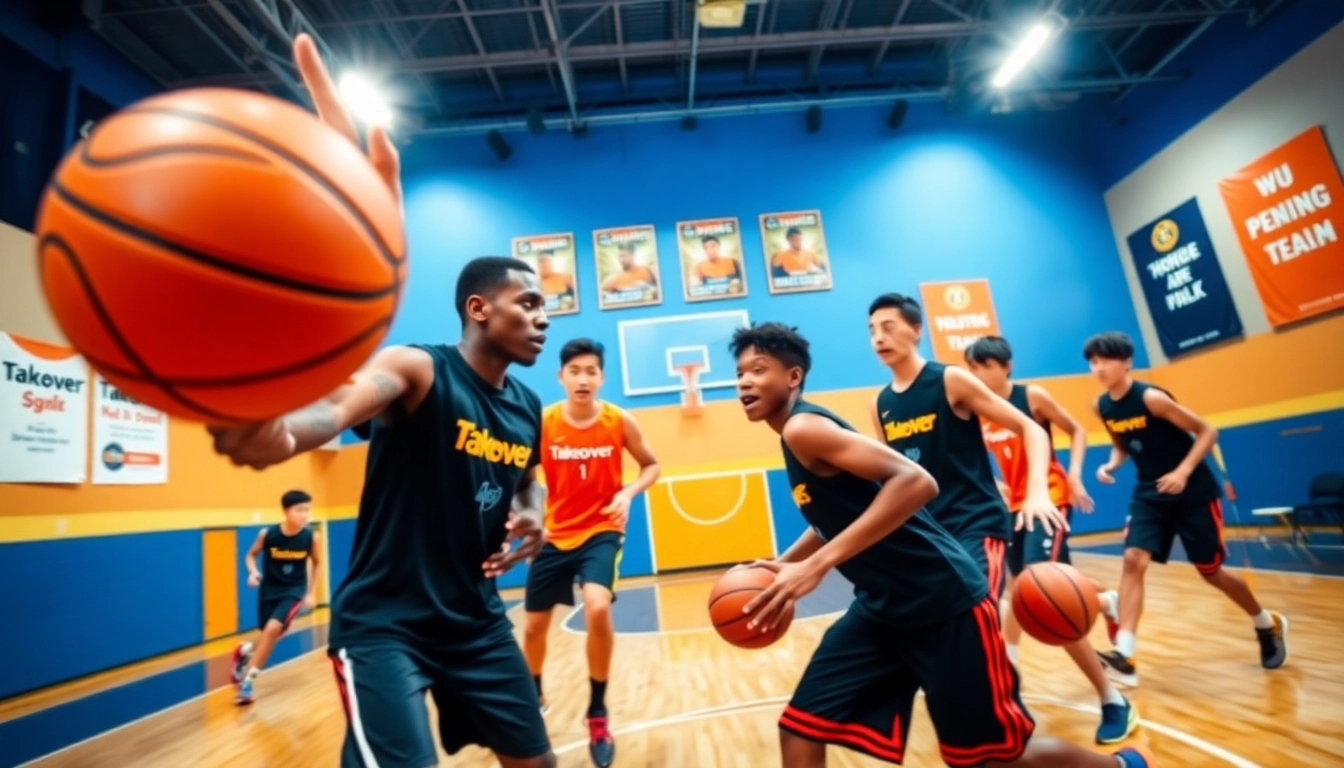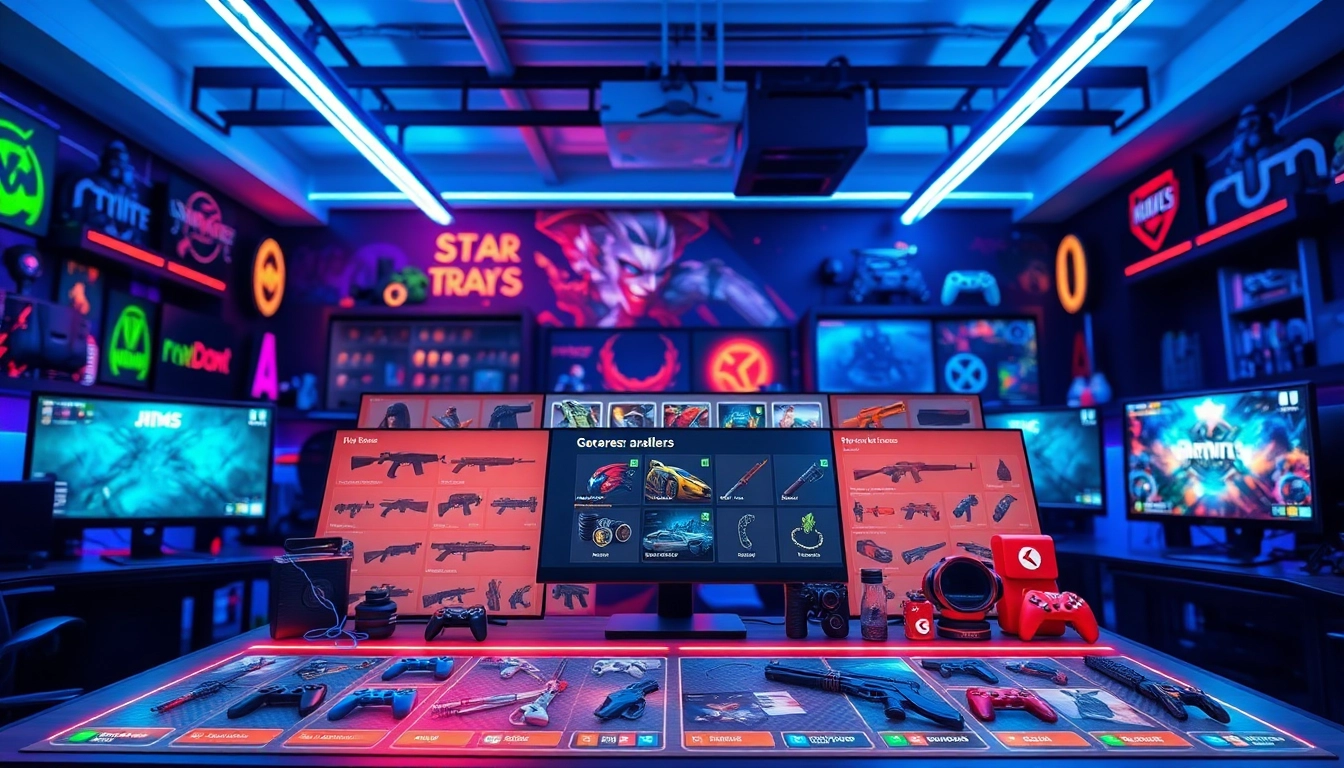
Understanding Multi Sports Camps for Boys
What Are Multi Sports Camps?
Multi sports camps for boys are designed to offer a variety of athletic activities tailored to engage young participants in a fun, supportive environment. These camps typically provide a mix of skill development, team-building exercises, and recreational games that cater to multiple sports. Unlike specialized sports camps focusing exclusively on one sport, multi sports camps aim to expose boys to various athletic disciplines, from soccer and basketball to swimming and athletics. This diversity not only helps campers discover new interests but also enhances their overall physical skills and enjoyment of sports.
One of the appealing aspects of multi sports camps for boys is that they cater to a wide age range, ensuring accessibility for boys at different stages of athletic development. These camps often emphasize participation over competition and strive to instill a love for sports that lasts a lifetime.
Key Benefits of Multi Sports Camps
Enrolling in a multi sports camp offers numerous benefits, especially for young boys. Here are some key advantages:
- Skill Development: Participants develop a diverse skill set by engaging in various sports, allowing for improved coordination, agility, and strength across multiple athletic disciplines.
- Social Interaction: These camps provide a platform for boys to make new friends and learn essential social skills such as teamwork, communication, and sportsmanship.
- Physical Fitness: Engaging in a variety of sports helps improve overall fitness levels. Boys learn to channel their energy positively, reducing the risk of obesity and promoting a lifelong appreciation for physical activity.
- Confidence Boost: Participating in varied sports allows boys to experience success in different environments, fostering self-esteem and confidence.
- Fun and Inspiration: The variety offered in multi sports camps ensures that boys remain engaged and motivated, which is essential for developing a love for sports and physical activity.
Age Groups and Skill Levels
Multi sports camps typically cater to a range of age groups, usually from early childhood through to adolescence. Recommended age brackets might include:
- 4-6 Years: Camps designed for younger children often focus on basic motor skills and introduce sports in a highly playful format.
- 7-10 Years: This age group sees an increase in skill development, with camps typically offering structured programs that allow boys to learn the rules and techniques of various sports.
- 11-14 Years: Pre-teens and early teenagers often benefit from competitive aspects and strategy-based training within a broader multi-sport framework.
Coaches at multi sports camps are trained to accommodate various skill levels, ensuring that both beginners and experienced young athletes find opportunities for growth. This adaptive approach allows children to thrive regardless of their starting point.
Activities Offered at Multi Sports Camps
Variety of Sports Available
Multi sports camps feature a range of activities that allow participants to try their hands at various sports. Typically included are:
- Soccer: Teaching the fundamentals of teamwork, dribbling, and strategy.
- Basketball: Focusing on shooting techniques, passing, and defensive strategies.
- Swimming: Offering lessons that both teach and improve water safety along with swimming techniques.
- Track and Field: Introducing boys to running, jumping, and throwing events, which build foundational skills for many sports.
- Rugby: Emphasizing contact skills, team dynamics, and ball handling.
By engaging in various sports, boys develop a well-rounded athletic portfolio, reinforcing different physical skills and promoting overall fitness.
Combining Skills and Fun
The structure of multi sports camps promotes both skill acquisition and enjoyment. Coaches utilize games and fun challenges to teach athletic techniques while keeping participants engaged and excited. Emphasis is placed on:
- Games: Activities like soccer scrimmages or basketball shooting contests make learning enjoyable.
- Skill Stations: Rotating through different stations promotes skill development while maximizing opportunities for play.
- Creative Activities: Optional non-sport related activities, such as arts and crafts, provide creative outlets and breaks from intense physical activity, ensuring mental stimulation.
By mixing sport with fun, these camps ensure boys remain enthusiastic about participating in physical activities.
Daily Schedule Breakdown
A typical day at a multi sports camp is structured yet flexible, allowing for both rigorous training and relaxation. Here’s a breakdown of what a day might look like:
- Morning Warm-Up: Each day usually kicks off with group stretches and a fun warm-up exercise to get the blood flowing.
- Skill Development Sessions: As boys progress through the day, they partake in dedicated skill training focusing on specific sports.
- Team Building Activities: In addition to sports, these sessions might include trust games or problem-solving challenges that reinforce social interaction and teamwork.
- Lunch Break: A time for resting and socializing, diligently ensuring nutritional needs are met to support active lifestyles.
- Afternoon Sports Activities: The post-lunch period is often filled with organized games, tournaments, or friendly competitions, reinforcing skills learned during the day.
- End-of-Day Reflection: Many camps conclude with circle gatherings, where campers can share their experiences, accomplishments, and learn important lessons about sportsmanship and personal growth.
Choosing the Right Multi Sports Camp
Factors to Consider When Selecting a Camp
Choosing the right camp can be a daunting task. Here are essential factors to consider:
- Location: Proximity to home can ease transportation concerns and enhance convenience.
- Cost: Determine the budget; camp costs can vary significantly based on amenities and duration.
- Duration: Camps can range from a single week to an entire summer; consider what works best for your family’s schedule.
Evaluating Camp Facilities and Coach Quality
The quality of facilities and coaching can directly impact the camp experience. Look for:
- Clean and Safe Environments: Check for safety measures in place, suitable equipment, and monitored play areas.
- Certified Coaches: Inquire about the coaches’ qualifications and backgrounds to ensure they meet professional standards.
- Support Staff: Consider additional support staff who assist with operations, first aid, and managing campers’ needs.
Reading Reviews and Testimonials
Prior to enrolling your child, do your homework by reading reviews and testimonials from previous participants. Authentic feedback can provide valuable insights into the camp’s culture, teaching methods, and overall experience. Look for comments on:
- Success Stories: Positive outcomes from past campers are encouraging indicators.
- Camper Satisfaction: High satisfaction rates among campers often translate to a quality experience.
- Skill Development: Testimonials highlighting personal growth can be especially reassuring for parents.
Enrolling Your Child in a Multi Sports Camp
Registration Process Overview
The enrollment process for multi sports camps is typically straightforward. Steps usually include:
- Online Registration: Most camps allow you to register online, providing necessary information about your child, including medical conditions and emergency contacts.
- Payment: Review all cost details, including deposit requirements and payment deadlines.
- Important Documentation: Prepare to submit any required forms, such as health records or waivers.
Necessary Gear and Equipment
Depending on the sports offered, specific gear may be required:
- Footwear: Ensure your child has suitable sports shoes to prevent injuries.
- Sport-Specific Gear: Items like shin guards for soccer, helmets for baseball, or swim goggles may be necessary.
- Comfortable Clothing: Breathable, athletic clothing is essential to allow for active participation.
Preparing for the Camp Experience
Preparation is key to ensuring a smooth transition into camp life:
- Discuss Expectations: Talk with your child about what to expect, address concerns, and build excitement for the upcoming experience.
- Pack Essentials: Ensure they have all necessary clothing and gear, plus items like sunscreen, a water bottle, and snacks.
- Establish a Routine: Help your child develop a routine leading up to camp, promoting physical readiness and mental adjustment.
Success Stories from Multi Sports Camps
Personal Growth Through Sports
Many boys emerge from multi sports camps with a sense of personal achievement. Success stories often highlight:
- Improved Confidence: Boys often return home with newfound confidence after overcoming challenges and trying new sports.
- Leadership Skills: Participating in team sports helps cultivate leadership capabilities among boys, supporting their growth as individuals.
- Resilience: Learning to face both victories and defeats fosters a sense of resilience that extends beyond sports.
Building Friendships and Teamwork
Multi sports camps are not just about competition; they provide an environment for friendship and camaraderie. Key aspects include:
- Team Activities: Group exercises and scrimmages encourage bonding during competitive play.
- Shared Experiences: Experiencing challenges together, both physical and emotional, helps build lasting friendships.
- Camaraderie: Boys learn to support one another, practicing essential teamwork skills they’ll carry into future endeavors.
Athletic Development and Future Opportunities
Many boys experience significant development not just during camp but in their broader sporting journeys:
- Skill Refinement: Many campers find particular sports they excel in and continue pursuing them beyond the camp.
- Scholarship Potential: For those showing exceptional talent, exposure to various sports can open doors for scholarships in high school and even collegiate sports.
- Networking: Friendships and connections made at camp can lead to future opportunities in sports, such as local teams or continuing education in athletics.








